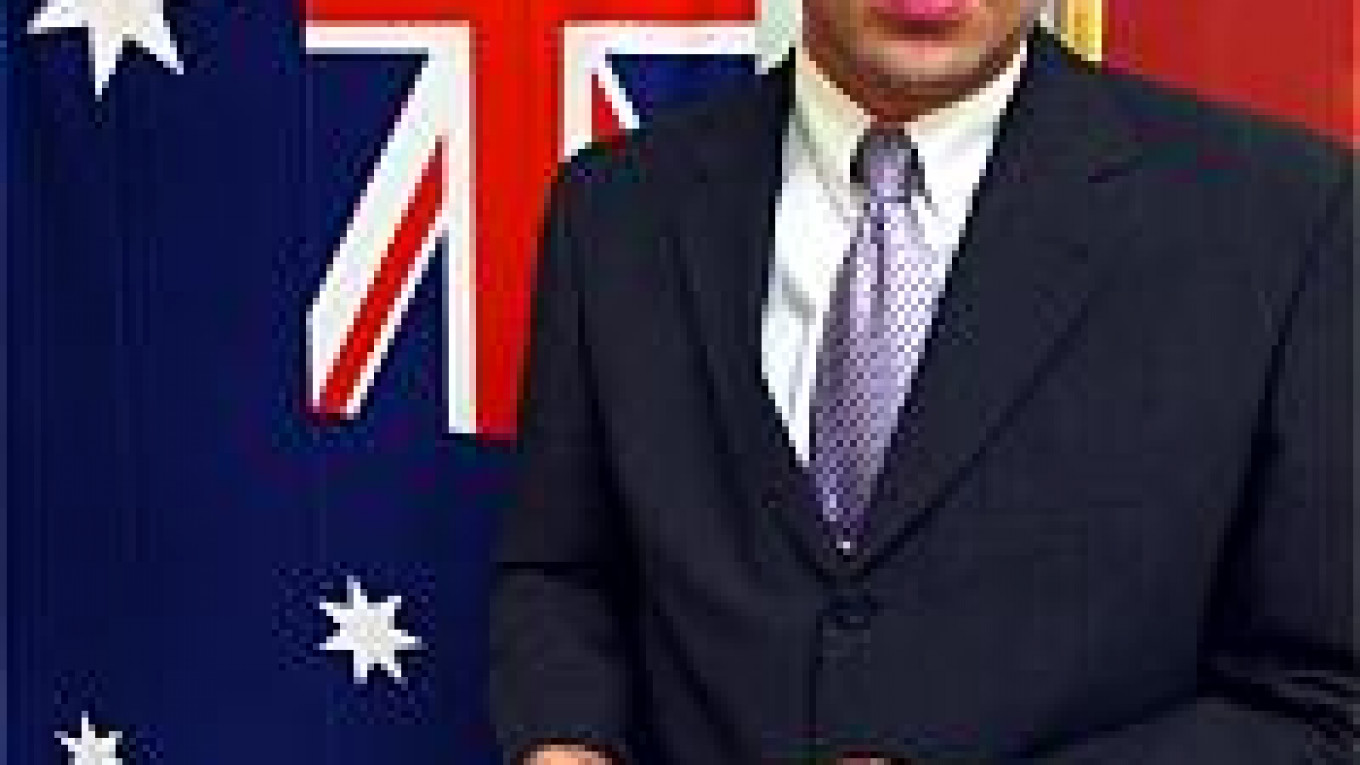Born in 1969 into a family of marine ecologists, Klumov enjoyed a protected Moscow childhood, beginning to study English at the age of seven at a selective school where a number of subjects were taught in English.
In his second year at Moscow State University, a friend invited him to join her at "some interview." The interview turned out to be a screening for an undergraduate exchange program. His friend failed, while Klumov won a place to study in the United States.
He spent the next two years at a liberal arts college in the small town of Lewiston, Maine, where he studied natural sciences and economics. His prejudices that the United States was an isolationist and poorly educated nation were shattered. "The Americans I met at Bates College were all fluent in several languages, widely traveled and well-educated," he said.
Klumov said he was quick to grasp the cultural differences, pick up college slang and adjust to a new lifestyle and mentality. He became so integrated into the American way of life that when he graduated in 1991, he planned to return to the United States to get his master's. Yet, once back in Russia, he found himself in the midst of dramatic historic changes.
"It was too exciting to go back, so I decided to stay," he recalled.
With an impressive resume that included work experience in the State of Maine Executive Department, Klumov quite easily found a job with a small Australian media company in Moscow. The Australian expat community was rather small in those days and meeting all the Australians in town was inevitable. One of them became his future wife -- Australian Broadcasting Corporation correspondent Monica Attard.
Married in Russia, the couple had no plans to move elsewhere and only the death of Attard's father in 1994 made them pull up stakes and relocate to Sydney, initially intending to be there for only a year. But shortly after, Attard was offered the job of hosting a popular show on ABC and Klumov, still only 25, got a job with a private investment company in Sydney seeking out gold mining opportunities in a number of countries, including Russia.
Despite his science background, Klumov said he found he made quite a good businessman.
"It's all about the ability to learn. If I don't know how to do something but I know people who do, I go to them," he said. "I was also quite lucky to work with people who were much older and more experienced than me. It was my crash course, so to speak," he said with a smile.
His work with the investment company and later as the general manager in Europe for Australian Defense Industries, where he helped drive its export push into the former Soviet bloc, meant Klumov had to travel extensively in Europe and North America, going on business trips every three to four weeks.
He soon got to know a lot of interesting people, both in his new home country and around the globe. One of them was an Australian who had worked for 35 years in the Australian Trade Commission and told him about the Moscow-based job with Austrade.
Klumov, who had also gone on to do two jobs for information technology companies, said he had never before considered working for the public sector, but after contemplating the idea for some time, he became convinced that the job would offer him wider opportunities, and applied for the position.
"In the private sector what you do is strictly determined by the interests of shareholders. Here I can serve the whole Australian business community," he explained.
Klumov was appointed to the senior trade commissioner's job in Moscow in July and lives with his wife and 6-year-old son Sasha in an apartment across the river from the Kremlin.
In his new role, Klumov said he has to deal with emergency situations every day and spends much of his time helping people get out of trouble.
"Maybe it's my dad's legacy -- he always used to teach me that kindness is the most important thing in life. That is why it is hard for me to turn a person down," he said.
"Relationships are essential not only in our personal lives, but in business as well," he continued, "and what makes them work is openness and sincerity on both sides.
"Most people in Australia are very friendly and truly genuine. I also do my best to be that way," he said.
A Message from The Moscow Times:
Dear readers,
We are facing unprecedented challenges. Russia's Prosecutor General's Office has designated The Moscow Times as an "undesirable" organization, criminalizing our work and putting our staff at risk of prosecution. This follows our earlier unjust labeling as a "foreign agent."
These actions are direct attempts to silence independent journalism in Russia. The authorities claim our work "discredits the decisions of the Russian leadership." We see things differently: we strive to provide accurate, unbiased reporting on Russia.
We, the journalists of The Moscow Times, refuse to be silenced. But to continue our work, we need your help.
Your support, no matter how small, makes a world of difference. If you can, please support us monthly starting from just $2. It's quick to set up, and every contribution makes a significant impact.
By supporting The Moscow Times, you're defending open, independent journalism in the face of repression. Thank you for standing with us.
Remind me later.


